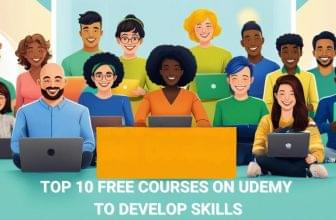Education continues to be one of the disciplines where you can notice a significant drop in popularity. In 1970-71, colleges and universities in the USA conferred 176,307 degrees in Education. Comparing it to the 2019-20 data, where the institutes gave out 85,057 degrees, it’s apparent that the number of students pursuing careers in Education has dwindled significantly. However, that doesn’t imply that the competition has decreased.
Preparing for 7 Career Options in Education
Most students believe that teaching is the only career available after majoring in Education. That’s why the dwindling number of students opting for Education owes much to the challenges of this profession. From low pay scales to increasing harassment cases and unnecessary pressure, you’ll not run out of options to not choose this career. However, teaching isn’t the only option available for you to pursue. Some of the top alternatives include the following:
Education administrator
As an education administrator, you’ll be responsible for providing administrative support in any educational institute, ensuring quality control for courses, conducting recruitment and marketing-related activities, participating in policy-making, etc. While you don’t require a specific degree for this role, working with human resources or marketing would require you to have relevant degrees in the particular areas.
When preparing for this career, you can opt for business apprenticeships or sign up for a Master’s degree in education management. For example, an M.A. in Educational Planning and Administration can prepare you for this role. You should also complete the following steps:
- Sign up for a public school administrator license
- Work on your interpersonal skills
- Brush up your I.T. skills to manage databases, spreadsheets, etc.
- Boost your communication and teamwork skills
Educational psychologist
An education psychologist works closely with children, parents, teachers and school administration to help young students struggling with learning challenges, communication and emotions. In this role, you can provide individual support to students, work closely with a group of students with similar problems, and assist the systems around students in improving their policies.
To prepare for this role, you must:
- Obtain a Bachelor’s degree in psychology
- Obtain a Master’s degree in education psychology
- Complete your internship training
- Obtain your professional license
Since you’ll have to work closely with distressed students and their families, it is crucial that you prepare for the following:
- Keeping an open mind and taking a sensitive approach when dealing with students
- Maintaining excellent communication and interpersonal skills
- Working under intense pressure
- Maintaining diplomacy and handling sensitive and confidential information
Community education officer
The role of a community education officer is to promote local education, organise training opportunities, and work with community organisations in high-unemployment localities to create learning opportunities. The primary responsibilities in this role involve the following:
- Identifying areas with a lack of education opportunities and promoting activities to meet the needs of these localities
- Supporting local volunteer groups working with educational institutes
- Developing learning plans to overcome educational barriers
While you don’t need a specific degree to work as a community education officer, completing your Bachelor’s in education, sociology, community development or social work will be in your favour.
To prepare for this role, you should:
- Sign up for short courses on education management or communication in addition to your degree course
- Work with voluntary organisations as a student to gain experience in community education
- Adopt a flexible approach to deal with various emergencies and changes
- Polish your skills to motivate large groups of people
Counsellor
In a world where people have become more concerned regarding mental health, the demand for professional counsellors has increased significantly. According to professional academic consultancy services, most students who pay for assignments related to Education want to become a counsellor and help other students identify and resolve pressing issues in their lives.
Counsellors provide a non-judgemental environment where clients can feel safe and comfortable sharing their problems. As a counsellor, your primary role isn’t to provide a solution, but to support the clients, challenge their beliefs and help them see the situation from different perspectives.
The road to becoming an education counsellor includes the following preparatory steps:
- Completing your Bachelor’s degree in Education
- Completing your Master’s degree in Education or counselling
- Opt for a PhD course in a specialised field
If you don’t wish to obtain a doctorate, you can apply directly to the post of Education Counsellor at your preferred institute.
Child psychotherapist
Child psychotherapists conduct psychoanalytical assessments and treat children suffering from mental health problems, including anxiety, depression, self-harm, aggression, eating disorders, phobias, and other issues. The primary responsibilities in this role involve the following:
- Carefully observing children in their daily activities to determine behavioural patterns
- Working alongside other professionals to provide the best care for a child and their family
- Tailoring your approach based on a child’s particular needs
If this career seems like the best option, you can prepare for it by following these steps:
- Completing your M.Sc. or M.A. in Child Psychology
- Get substantial experience in child psychotherapy training
- Engage in long-term psychoanalytic assessments with children and their families
Youth worker
Youth workers work with children and young adults between 11 to 25 years in various settings, such as schools, colleges, youth centres, etc. The primary aim of this profession is to organise community programs to help young people reach their full potential. As a youth worker, you’ll need to work with volunteer organisations and community workers. Thus, your preparations must include developing your interpersonal and communication skills.
Your responsibilities in this role include:
- Supporting high-risk youths struggling in violent environments
- Gaining the trust of young individuals and helping them with social inclusion
- Regularly monitoring the activities of local youth organisations
- Working with community members and parents to implement policies
To prepare for this role, you can sign up for the following:
- Bachelor’s or Master’s degree in youth work, youth and theology, community and youth studies, and other relevant subjects
- Apprenticeship programs where you can develop the skills necessary for youth work
- Volunteering under a registered NGO to gain work experience
Camp director
While becoming a camp director isn’t directly related to your Education degree, it is an important role where you’ll be responsible for developing a nurturing environment for students during camping season or specialised training sessions. Your responsibilities include overseeing camp activities, checking on employees and campers, and imparting organisational and survival skills to students. You’ll also need to be prepared to handle emergencies, health issues, and complaints.
So, to become an expert camp counsellor, you must train yourself in the following:
- Life-saving skills in case of emergencies
- Communication and interpersonal skills
- Safety procedures
- Managing budgets and allocating funds
You’ll also require a Bachelor’s degree in Camp Management, Recreational Leadership, or other similar degrees. If you’ve completed your degree in Education, you can also sign up for diploma courses or specialised training in outdoor recreation.
To sum it up,
Unlike popular belief, majoring in Education won’t restrict your choices regarding a long-term career. While teaching is the go-to professional after completing a Bachelor’s degree in Education, you can pursue other opportunities, such as the ones highlighted in this blog. However, the preparation options vary according to the profession. So, it’s best to pick one goal and dig deep into its details instead of becoming the jack of all trades.





